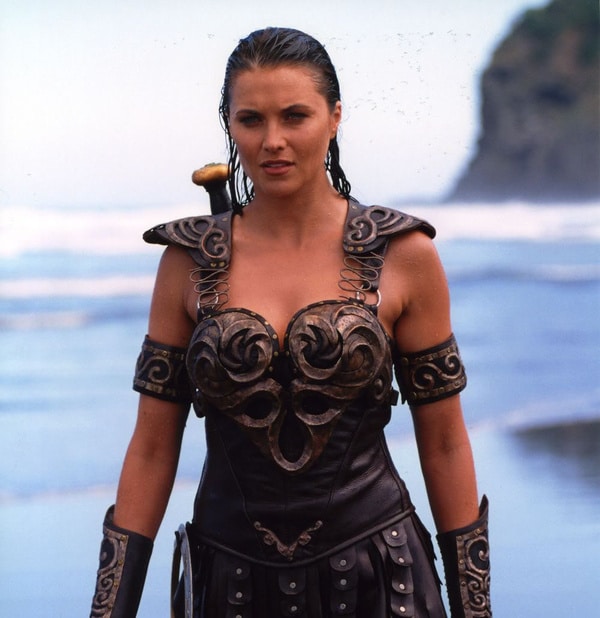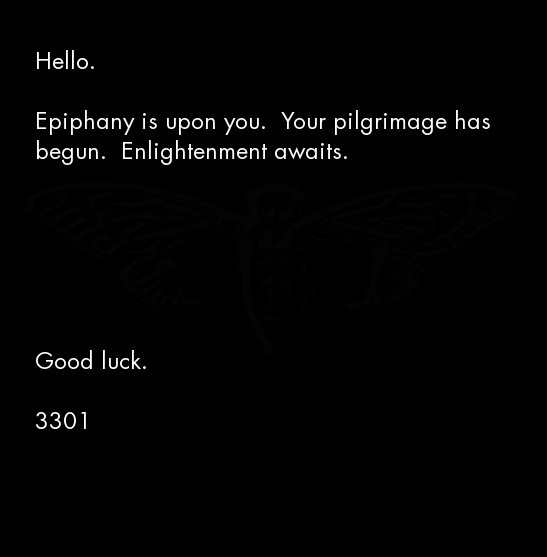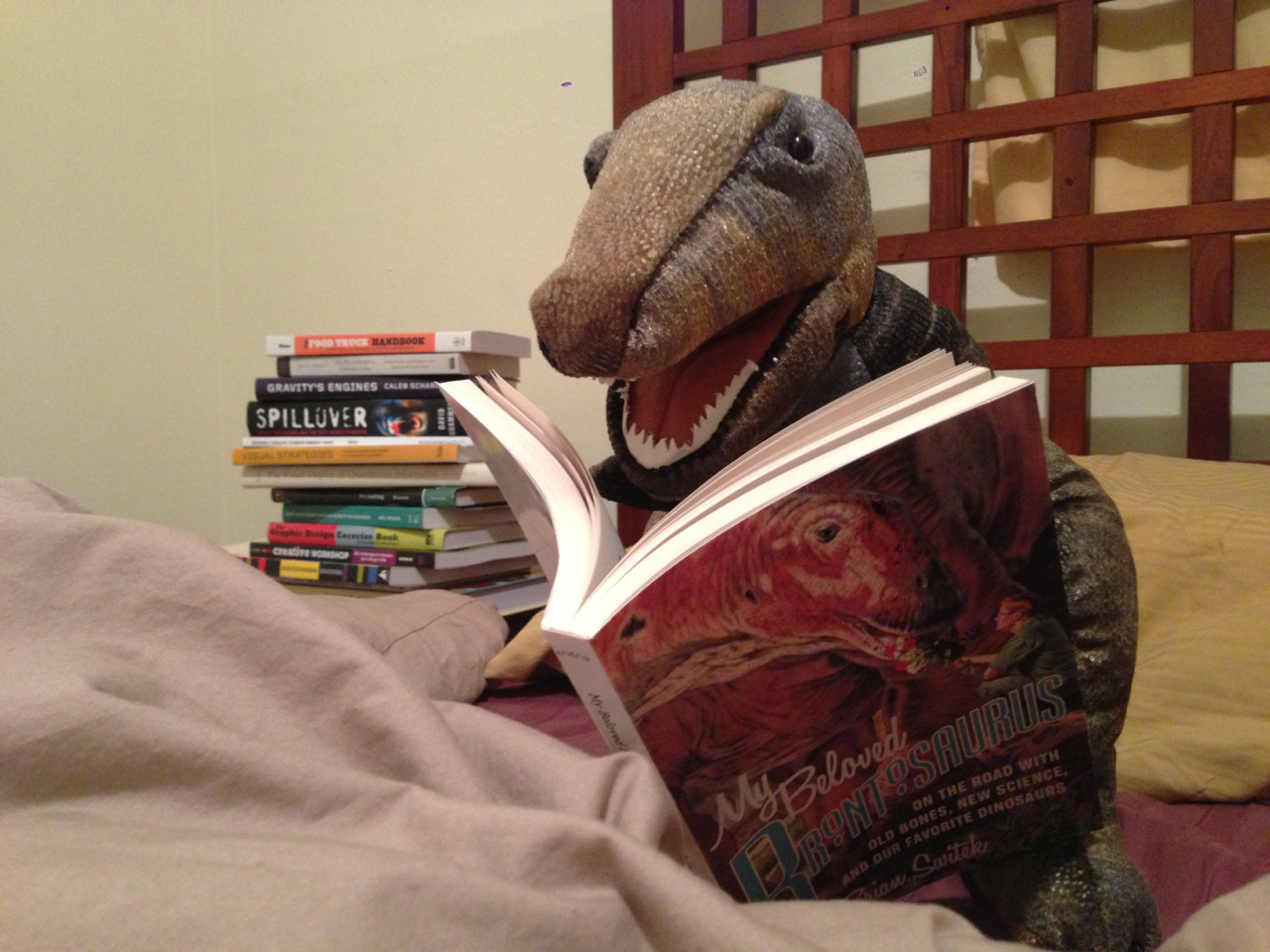As everyone knows, I'm sure, Rusty, Andrew, and I have been engaged in a duel to see who can do 2,014 pushups first this year, and I'm pretty sure that I am going to finish no worse than third. Assuming I
finish, because lately it seems like I'm getting
worse at them.
I started that push-up duel after one day Rusty tweeted about how many push-ups he'd done, which prompted me to try doing some, myself, only to find that I have the upper-body strength of a sickly kangaroo.
I say 'kangaroo' because if there's an animal you imagine not having upper-body strength, that's the one, right? I wasn't trying to imply that I'm good at hopping. I could also have gone with T-Rex:
But that seems like bragging. "
Hey, I'm like a T-Rex!"
The Great 2014 Push-Up Duel (which Andrew is going to win because he can do something like 150 at a shot) came to mind when I started thinking about what I learned from reading, and I think it's an apt comparison, because while I could go over the many actual facts I learned inadvertently by reading (like what a white dwarf star is, thank you very much,
Atom comics) or
advertently (huh?) learned from reading (like how nutmeg used to be supervaluable as a spice, prompting battles over it), and it's certainly true that I've learned lots of stuff from reading, I think the
more important point of reading is what it does for your mind.
From when I was a kid until now, I have always preferred reading over every other form of entertainment. I was one of those kids you never saw without a book in his hand. I'd check out 10, 12, 14 books at once on our biweekly trip to the Hartland library, and I'd ask for books for presents and buy books with my allowance. While my brothers were watching TV or listening to their Queen
News Of The World albums, I'd be reading.
My reading tastes began, as you'd expect, with things like comic books and
Cracked magazine (I always liked that one better than
Mad, although I read both), something that gave my well-read Mom no end of troubling thoughts, as she assumed I'd spend my life reading trash. And I read a lot of what Mom would consider trash -- Thor comics, for example.
But it wasn't
really trash, not the way Mom thought of it, and it was
doing something to me, something completely aside from teaching me that Asgard was an actual thing actual people believed in. I don't know if the Norse believed Thor had long gold hair and I'm pretty sure they didn't think he had a secret identity as a doctor, but I do know that they believed in Thor and Loki and Odin and Ragnarok and all, because of comics.
Still, the bigger part of is that by reading, I was exercising my mind. That's what reading does, and does so much better than movies or TV shows or songs or
Plants vs. Zombies videogames (although I think videogames actually probably come the closest to being a reading-like experience. Don't get me sidetracked!)
When a person reads, he or she is forced to do
all the work. Instead of having words and sounds and images crammed into that person's head by someone else, as movies do, the reader has to gather the information on his or her own and assemble it into something in their mind. It's the difference between this:
And this
Even as a kid, I knew this without necessarily thinking about it. When we'd go see movies, I'd almost always end up getting the novelization of the movie and reading that, and liking that better. I can remember seeing
E.T. The Extra-Terrestrial, and then getting the book about the movie by William Kotzwinkle and marveling at how much better the book was than the movie.
That's true even if you've seen the movie, too, as I found out with that book, because books have to work harder to get you to the same place -- kind of like me versus Rusty and Andrew in pushups, right? -- since they don't have all the same tools. Books don't have soundtracks with SURROUNDSOUND (TM) explosions, or Princess Leia in a metal bikini,
 |
There is, literally, no topic
I can not shoehorn this picture into. |
or any of the other things movies can do, something that may change someday (I used to post my novels in serial form with music for each part, and I know that some writers like Jessica Bell use soundtracks with their books, too, plus choose-your-own-adventure books have tried to add a third dimension, if you will, to books, and probably someone has tried a scratch-and-sniff novel.) (If they haven't, DIBS!)
(Sometimes, the effort to add a bit of movie-ishness to books fails miserably and ends up being annoying, as with the book
Miss Peregrine's Home For Peculiar Children, by Ransom Riggs, which I assume is a pseudonym, a book that used creepy-looking old-time photos of kids to set up the story but which ends up using them in an awkward and intrusive way, almost as if I were to simply decide to now also put a picture of Xena into this post for no reason and then try to tie that back into what I was writing about.)
 |
"Books are like Xena, in that when I post pictures of her on my other blogs, my wife gets upset."
|
As I was saying,
Xena books have to do a lot more work (and so writers have to do a lot more work) to convey the same amount of information that movies can just flop onto your lap like a dead fish.
(NOTE TO SELF: WORK ON SIMILES)
In an exchange with Andrew on his blog, I pointed out that the movie
Nebraska, according to his review, seemed to make effective use of film as a visual (and auditory) medium when it had the characters be silent for long periods of time, something that seems an odd choice for a movie, hat with all that SURROUNDSOUND, but I noted that there's a difference between a 5-minute silent stretch of a movie and this line:
"The two didn't talk for a long time."
Movies get those effects easily. Books do not.
So when I'm reading, I've got to do all this heavy lifting and pushing and pulling. I've got to come up with, in my mind, what a Hobbit looks like, what a boxcar full of prisoners of war and Billy Pilgrim sounds like, how Jonathan Strange and Mr. Norrell look standing next to each other, and so on. The more detail an author provides, the easier that is, of course: I've got an easier time picturing Diagon Alley than I do Cair Paravel, because C.S. Lewis doled out details like a miser, but that may make Narnia all the richer for me in my mind because it's
my Narnia, not someone else's.
One of the greatest achievements in filmmaking, I think, in my lifetime, was Peter Jackson's
Lord Of The Rings, because it
looked exactly like
my Middle-Earth, or close enough to it that I didn't mind the slight differences. I was nervous going into those films because I'd read
Lord Of The Rings twice in my lifetime and had loved it since I was 12, and I was worried Jackson would make it look
dumb, but he didn't, and I loved the movies for that: my imagination was up on the screen, right there, finally, with everything I could have wanted from the movie.
Maybe that'll happen with other books in the future, but it hasn't yet, and so all my life I've had to take the things I was given and build my own Mote system, Gap chasm, or Jubal Harshaw home. I've had to imagine what Valentine Michael Smith looks like, how it feels to see Neysa gallop up the side of a mountain, or how messy Dirk Gently's office is.
I'm
certain that because of that, my Imagination Muscle is larger and stronger and has greater endurance than it would otherwise. Reading has always led to more reading, for me and for probably everyone. But reading leads to more
imagining, too, because it has to. And so voracious readers, I believe, become more creative. Maybe they don't always grow into loving to write, although I see a lot of people who like reading eventually try their hand at writing, but I bet anyone who reads a lot is a very creative person in whatever they do.
And I have what I think of as some proof of that, too. Both of my two youngest sons, Mr F and Mr Bunches, are autistic, and one of the big goals with any person with autism is to get them to understand hard-to-grasp concepts, like
imagination. When they were younger, they didn't really
pretend or
play anything, not the way I had with my friends, playing
guns in the yard or with my action figures.
But we started reading to them and with them, from as soon as they were born. (The first story I ever told them was in the middle of the night when they weren't even 24 hours old.) We sit and read to them, even when we weren't sure they understood what it was they were hearing. I'd read their books, my books, magazines, whatever I could to them, and show them pictures, and as they could grasp them, ask them questions.
And it's working. They have accelerated, not just in their ability to communicate, but in their
own reading and playing. They now pretend and make up their own stories, not just acting out things in movies (the way I would use my Luke Skywalker action figure to rescue Princess Leia from the Death Star that was my dresser) but creating their own stories using them and their imaginations.
We still read, with them and separately from them, every day. And aside from that, I read as much as I can as often as I can -- expanding out to magazines and websites and blogs, and oftentimes I forego television and movies to read. I can get Netflix on my Kindle, but if you were to check my stats, I bet I spend 100 minutes reading for every minute I watch something. Writers who have made it big will tell you if you want to be a good writer, read a lot, and I think like me they are on to the secret: reading exercises your mind the way push-ups exercise your body. And while I do the latter grudgingly, I'm practically an Olympian at reading.
BUT!
Briane Pagel thinks that
scientists lost all credibility when they decided to pretend the brontosaurus actually existed, and credibly pointed out that velociraptors were simply made up in his groundbreaking essay, "
Velociraptors, My Butt," which appears in his book "Do Pizza Samples, Really Exist (And 117*)(*Give Or Take) Other Ways Of Looking At Life".
Find his short stories and essays on Amazon, and at
lit, a place for stories and
Inky.
He has so far this year done 509 pushups, which isn't bad.
 March Madness is winding down in the college basketball world, but in the blogging world April Madness is about to begin. I'm talking about the A to Z Blogging Challenge, in which for the month of April each day will feature a post corresponding to a letter in the alphabet--excluding Sundays.
March Madness is winding down in the college basketball world, but in the blogging world April Madness is about to begin. I'm talking about the A to Z Blogging Challenge, in which for the month of April each day will feature a post corresponding to a letter in the alphabet--excluding Sundays.



_crop.jpg/210px-Francisco_de_Goya,_Saturno_devorando_a_su_hijo_(1819-1823)_crop.jpg)



































